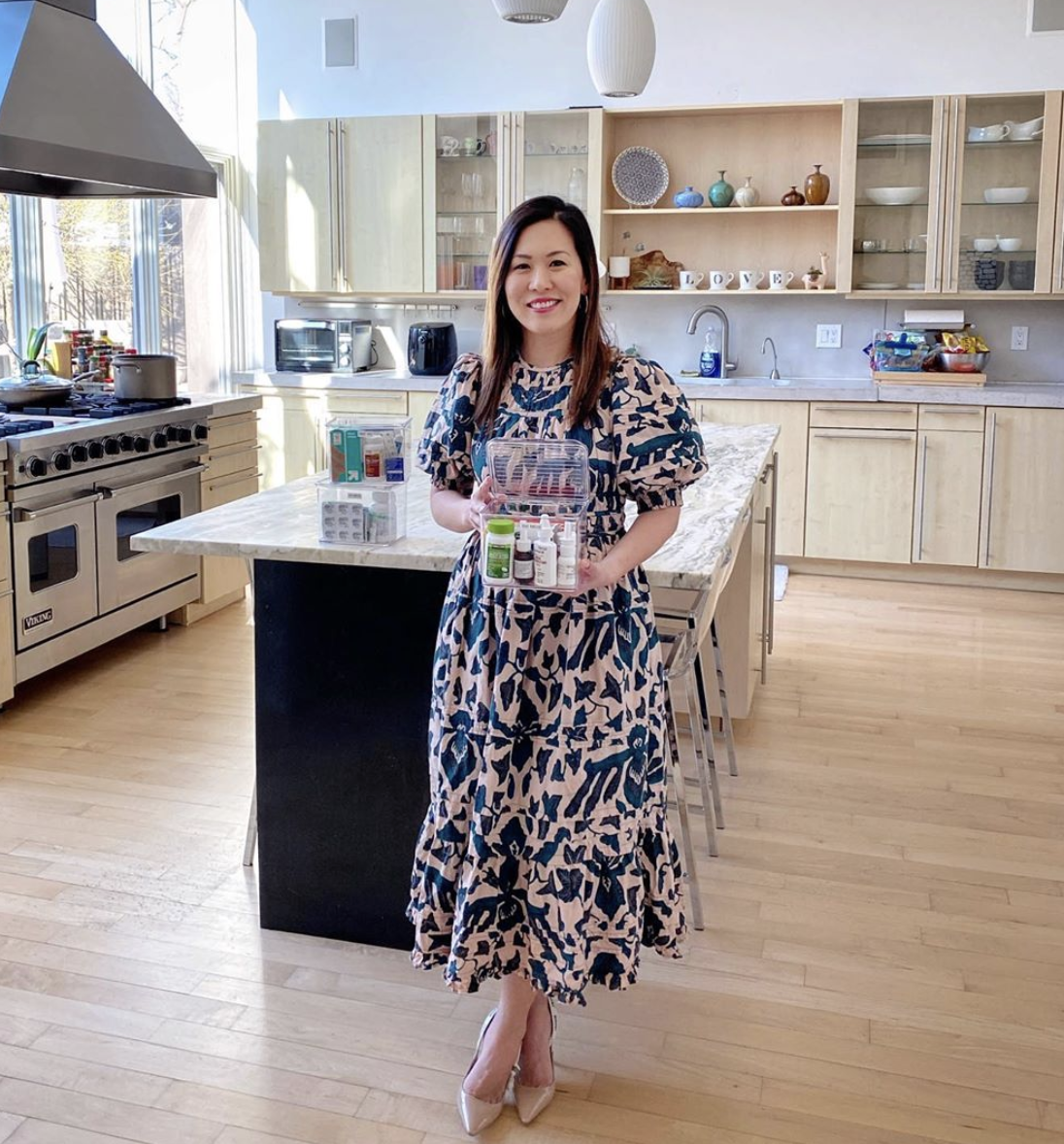COVID-19 INSIGHT FROM NEW VOLUME 5 MEMBER DR. LESLIE KIM

We are so excited to have Dr. Leslie Kim, MD, MPH joining The Guide for our fifth volume. Dr. Kim is the director of facial plastics at OSU Wexner Medical Center and the only female board-certified facial plastic surgeon in Central Ohio. She offered some incredible information and advice on COVID-19 and why self-quarantine is the most efficient measure to slow the spreading of this viral illness. Dr. Kim also shared insight about the steps you should take if you believe you are positive for COVID-19, but don’t feel ill enough to go to the hospital.
-The “incubation period” for COVID-19, i.e. the time between catching the virus and beginning to have symptoms, is ~5 days (range 1-14+ days).
– 97.5% of those who develop symptoms will do so within 11 days. (Lauer et al. Ann Int Med 2020).
–You can spread the virus for 2-3 weeks, even if you are asymptomatic!
– One small German study found that viral shedding was highest ~day 4, which means you can be contagious well before symptoms develop (Woelfel et al. medRxIV 2020). – Hence, the self-quarantine recommendation for 2 weeks.
–Each infected person is expected to spread the virus to 2-3 people (R0). Seasonal flu is ~R0=1.3.
– Interestingly, the R0 on the Diamond Princess cruise ship was initially 14.8 (close quarters). With isolation/quarantine, the R0 reduced to 1.78 (Rocklov et al. J Travel Med 2020).
–The virus spreads via droplets and contact, although there is increasing concern that the virus can be airborne for several hours (van Doremalen et al. NEJM 2020).
–The three most common symptoms of COVID-19 are fever, dry cough, fatigue/muscle aches (del Rio JAMA 2020).
– Other symptoms include headache and sore throat. Loss of sense of smell and taste have been frequently reported (AAO-HNS Statement 2020).
– Some (up to 49%) may present with GI symptoms like loss of appetite, nausea/vomiting, and diarrhea (Pan et al. Am J Gastro 2020).
– Risk factors for worsening disease severity (ie requiring ICU care) include: older age (65+) and underlying medical conditions
, most notably: high blood pressure, diabetes, heart disease (Zhou et al. Lancet 2020).
– At this time, there is little data about whether asthma is a risk factor; one study shows no link to asthma or allergic diseases (Zhang et al. Allergy 2020).
– Several studies show that males are much more likely than females to die from COVID-19. More research is needed as to why.”

“80% of people infected with COVID-19 don’t get significantly ill or require hospitalization (Wu JAMA 2020).
-First, call your primary care physician (PCP). If testing is indicated and available, he/she will guide you.
– Self-quarantine for 14 days (see above for why).
– Seek immediate medical attention if you develop trouble breathing, bluish lips/face, chest pain, trouble eating and/or staying hydrated, new confusion, etc.
– When you call 911, give a heads up about COVID-19 concerns so appropriate precautions can be taken.
DISCLAIMER
——————
As always, ask your PCP for medical advice that is customized to YOU. Even OTC medications and vitamins/supplements can be harmful!
——————
– If your primary symptoms are sneezing, runny nose, and/or nasal congestion, it may be due to allergies.
– OTC allergy treatments include:
•oral antihistamines (ie generic versions of Allegra, Zyrtec, Claritin; Benadryl is sedating)
•oral decongestants (ie pseudoephedrine; caution with high blood pressure)
•nasal decongestants (ie oxymetazoline/Afrin; powerful but limit use to <3 days, causes rebound/worsening congestion)
•nasal steroids: (ie fluticasone/Flonase; when spraying, aim towards the outer eye to avoid nose bleeds)
– Many of the OTC treatments you use for cold/flu symptoms apply to COVID-19.
– Stay well-hydrated (your pee should be a pale color). Get plenty of rest. Optimize any underlying medical conditions if possible.
– “Woo”: There is NO evidence as of yet that vitamin C is helpful for COVID-19. Regular vit C supplementation *may* reduce the duration/severity of the common cold (Hemila Cochrane Database Syst Rev 2013).
– To relieve pain/fever: Take acetaminophen/Tylenol (caution in liver disease) if you have a choice, although there is no solid evidence against NSAIDs.
– Use OTC cough suppressants as needed.
– Do NOT take antibiotics (or other meds) lying around at home!
– Lastly, the best treatment is prevention. Stay home. Wash your hands. Practice social distancing. Please!”

Be sure to FOLLOW DR. LESLIE KIM on instagram for more informative and helpful content!!




